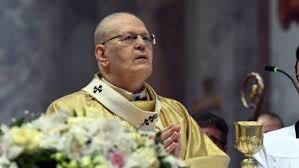The pope's final message to Hungary
At a Budapest Mass for Francis, one more call to honor human dignity
Yesterday, the faithful filed into the Basilica of Saint Stephen in Budapest to remember Pope Francis. Soon after the pope’s death - he passed at the Vatican on Easter Monday at age 88, Hungary’s Catholic bishops announced they would host a memorial Mass. So many mourners wanted to pay their respects to this charismatic and humble servant of God that the line stretched out into the square even after the bells began tolling for Mass.
Once inside, we waited expectantly underneath the basilica’s massive dome, surrounded by larger-than-life reminders of Hungarian Catholicism’s grand history. I was especially curious to see how Hungarian Cardinal Péter Erdő, who is rumored to be a candidate for the papacy, would reflect on Francis’s life and ministry.
But Erdő wasn’t there, so we learned from the welcoming remarks by a Hungarian bishop. The bishop said that Erdő was in Rome. He said Erdő’s absence was, in Hungarian, Értelemszerűen." In English, it means “for the obvious reasons.” For obvious reasons, even though other cardinals were still in their home countries and dioceses to lead memorial Masses and help their flock mourn.
Also absent was Prime Minister Viktor Orbán, who often clashed with Pope Francis. Orbán is one of Europe’s most conservative and nationalistic leaders. Since he came to power in 2010, Orbán has led a dramatic rightward shift in Hungarian politics. He has militated against compassion for refugees and migrants, and he regularly denounces the value of social diversity. Pope Francis challenged Orbán on these issues when the pope visited Hungary, first in 2021 and then again in 2023. (Not to mention his 2019 visit to the Hungarian national shrine, Our Lady of Csíksomlyó, in the Transylvania region of Romania.)
In four short years, three visits, three opportunities to immerse himself in Hungarian cultures and traditions. This pope has truly shown a distinctive pastoral concern for Hungary. During his trips to Budapest, both times Pope Francis commented on the specificities of this cosmopolitan city as well as Hungary’s history and cultural heritage. Like the good pastor he was, Pope Francis met the people where they are and honored what they honored. And then, also like a good pastor, he urged Hungary’s political leadership to show compassion for migrants and refugees and to honor diversity.
Even if Cardinal Erdő was not there - meaning that someone else would deliver the homily during Mass - the stage was set for score settling. Would this be a final word in the years-long back and forth between Pope Francis and Hungary’s leaders?
Lost in translation
The Vatican’s ambassador to Hungary, American Archbishop Michael Banach, read his homily from behind the altar, looking down at the pages on the table. Banach paused several times to let a young priest read a Hungarian translation from the podium. Banach smiled the whole time and spoke in a gentle voice. He said the whole world was in mourning, how the pope was a “part of all our lives” and a “citizen of the world.”
And then he started talking about Hungary.
“Of course,” he continued, “we in Hungary cannot forget, and remain strongly affected by, hearing his voice on two occasions.”
“Cannot forget.” “Strongly affected by.” Very euphemistic, I thought to myself, quite diplomatic, even coming from a diplomat.
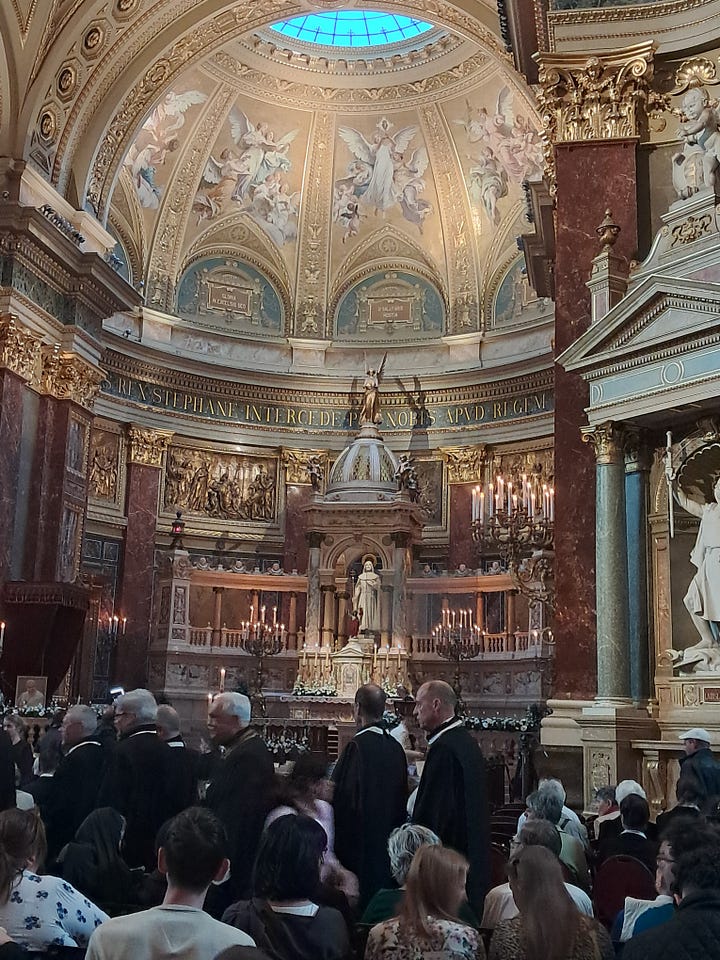


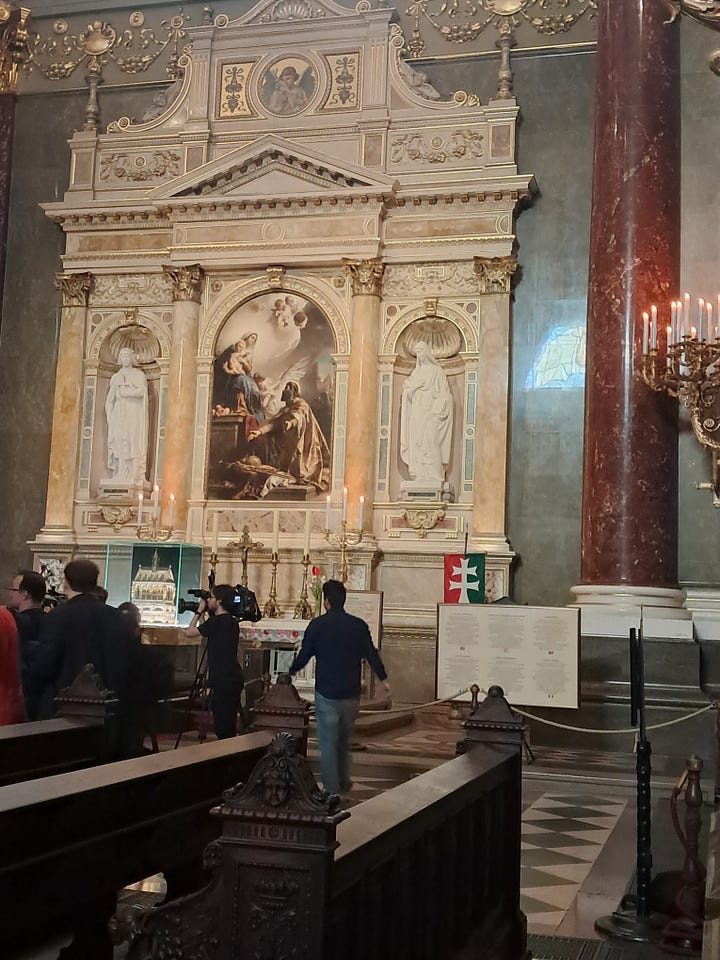
Banach began to summarize the major themes of Francis’s papacy, among them: “Dedicated concern for refugees, the poor, and those who have been afflicted by war.” It was a simply statement of fact. This was one of the pope’s major concerns. But the mere mention of refugees in Hungary - during a Mass attended by many of Hungary’s top political leaders - changed the tone of the homily, and transformed it into one last expression of papal pastoral concern for Hungary.
But then things got weird. Because although the Hungarian translator said these words about refugees, Archbishop Banach did not. The English text Banach read was different from the Hungarian text. My eyebrows went up when I realized there was a discrepancy. The English text omitted a reference to an issue that had divided the pro-compassion pope from Hungary’s political leadership.
A few minutes later, the Hungarian reader departed again from the English text. The Hungarian text featured a quote from Pope Francis, words that once again seemed intended to highlight another disagreement. In Pope Francis’s Urbi et Orbi Easter message, delivered just a day before he passed, he had offered a thinly veiled criticism of Israeli attacks in Gaza that had resulted in humanitarian workers’ deaths:
“In the face of the cruelty of conflicts that involve defenseless civilians and attack schools, hospitals and humanitarian workers, we cannot allow ourselves to forget that it is not targets that are struck, but persons, each possessed of a soul and human dignity.”
Of course, just a few weeks ago Israeli Prime Minister Benjamin Netanyahu visited Budapest. Viktor Orbán then announced, with Netanyahu at his side, that Hungary would withdraw from the International Criminal Court. Orbán justified the decision by mentioning that the ICC had issued a war crimes arrest warrant for Netanyahu.
But again, back at the memorial Mass, Archbishop Banach didn’t read these words from the pope’s Easter message. Only the Hungarian translator did. This part, apparently, was for Hungarian ears only.
I can only speculate about the discrepancies between the English and Hungarian texts of this homily. Here is the conspiracy theorist interpretation: Did Erdő intervene from afar to change the homily? Did he engage in censorship for the benefit of the international community - the English-speaking community? Was there something in these words that Cardinal Erdő did not want the English-speaking public to hear?
Erdő’s campaigning for the papacy is a badly kept secret. Maybe he didn’t want English-speakers to be talking about how the memorial homily in his home base highlighted issues that Francis and Orbán disagreed about.
I’m more inclined to the opposite view, though. Maybe it was just a pragmatic choice, keeping time constrains in mind. Reading two homilies - one in English, the other Hungarian - would have made for a very long Mass. Or maybe the two readers just didn’t coordinate well? The bishop doesn’t know Hungarian. Maybe he lost his place and didn’t know where the other reader was in the Hungarian version of the text?
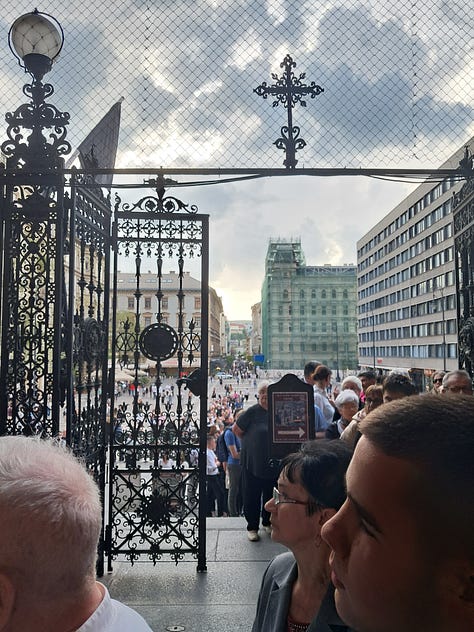

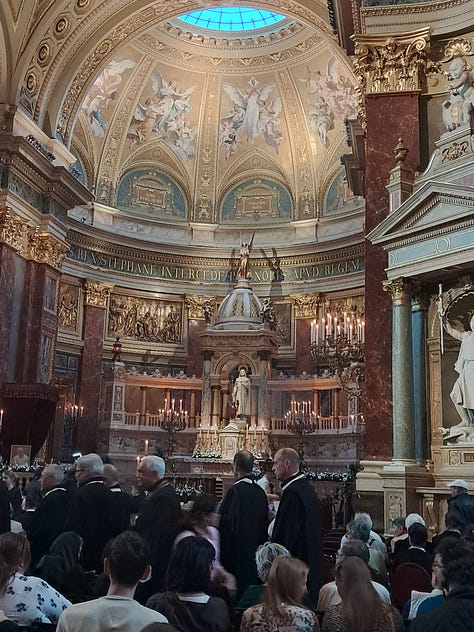
In the end, I don’t think it matters whether the conspiracy theory is right or wrong. What matters is that the words of Pope Francis rang out once again in Hungary, and that the pope offered one last pastoral message of concern to Hungary’s political leadership. Even in death, Francis continues to call Hungarians toward fundamental values like compassion for refugees and respect for human dignity.




